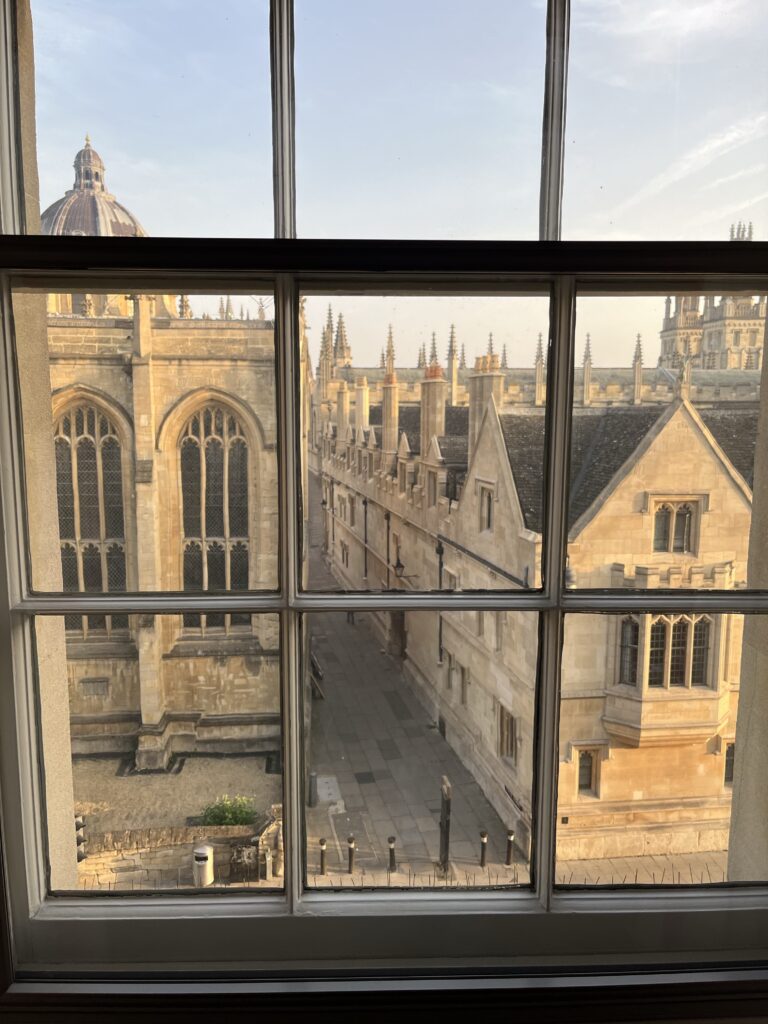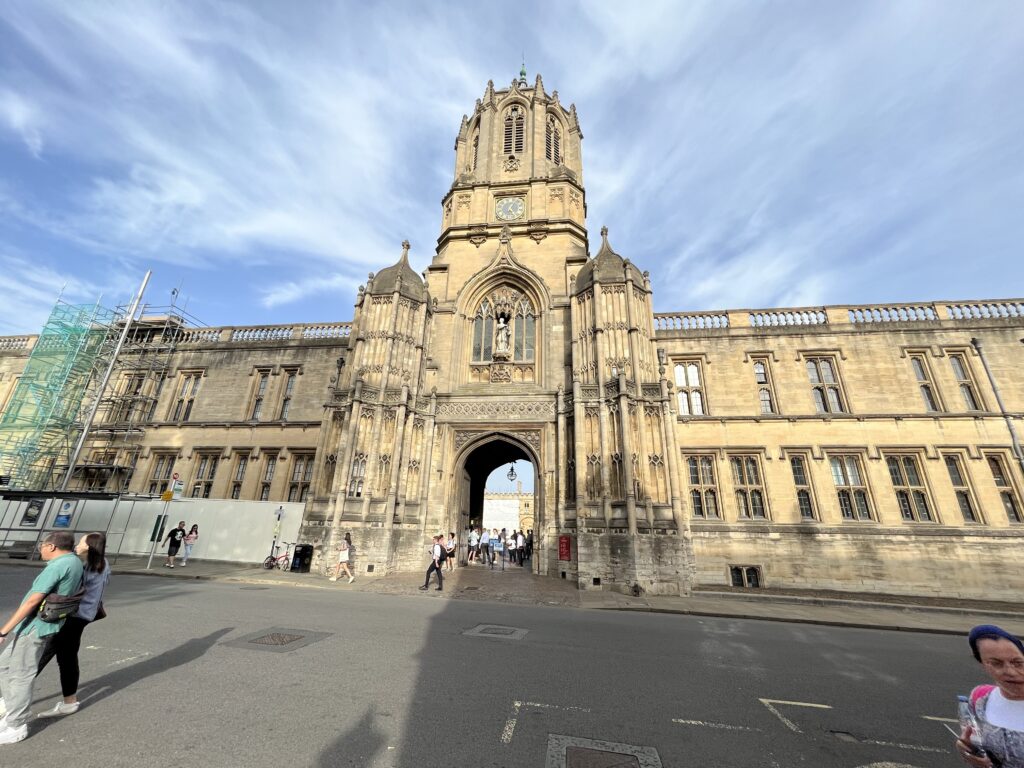
Oxford is beautiful, as I have been reminded every day when I rise and look out our hotel window. But Oxford is still the world, and even in times we would consider more Christian than today, those who pressed into God were persecuted by men.
The morning was spent at Oxford Castle, which like much of what we have seen at Oxford, was located just a short walk from our hotel. Oxford Castle was established by William the Conqueror and was completed in 1071. It was converted into a prison in the twelfth century and remained as such until 1997 when it was closed. Most of it now has been converted into a very clever looking hotel. This is kingdom stuff. Taking an unbiblical use of a building (the Old Testament law made no provision for prisons) and turning it into a source of blessing.


The unconverted part of the prison has been turned into a gift shop and tour, complete with a tour guide in costume, who led us through the halls of the prison and spoke of the horrors of life there. Absent was any mention that John and Charles Wesley and other members of the Holy Club, who met just a few blocks away, would visit with and minister to the prisoners.
Instead, the only reference to the spiritual was the telling of the obligatory ghost story. The books in the gift shop displayed a similar bias. They were almost exclusively about the vikings. Modern secularists want to rewrite history by glorifying the vikings, rather than calling a spade a spade, and even in Oxford, where they should know better, they go along with it.
The afternoon consisted of a self-guided tour of New Inn Hall street where the Wesleys met and preached and the first Methodist church in Oxford was established. I then walked a block over to St. Aldate’s street and Christ Church Cathedral where the Holy Club met but arrived too late for entry. I was told the Evensong service started that night at 6p and that I could enter then.

The Wesleys suffered ostracism and persecution at Oxford, and two hundred years later, C.S. Lewis would also suffer a more subtle form of persecution. Lewis had written one of the leading books on medieval and renaissance literature, was a published, popular author, and was one of the most popular lecturers at Oxford, but he was twice passed over for positions he should have received because the powers at Oxford did not approve of his work as a Christian apologist.
Holiness–whether manifested in visiting those in prison or being an evangelist through the written word–is a reminder to the world of its own sinfulness. The unredeemed do not like to be reminded of their sin, so they retaliate. It’s that simple. The Apostle Paul warned Timothy of this reality:
Indeed, all who desire to live godly in Christ Jesus will be persecuted.
2 Timothy 3:11.
I returned to the hotel looking for the rest of the GSB team, who had abandoned me and our holy pursuit of mining the Christian history out of Oxford for worldly pursuits like shopping and hair appointments. I found them, of course, in the bar. I told them about my afternoon tour and that we still had time to get into Christ Church Cathedral for the Evensong service at 6:00 p.m., to which The Wife said, “You do that.” GS

